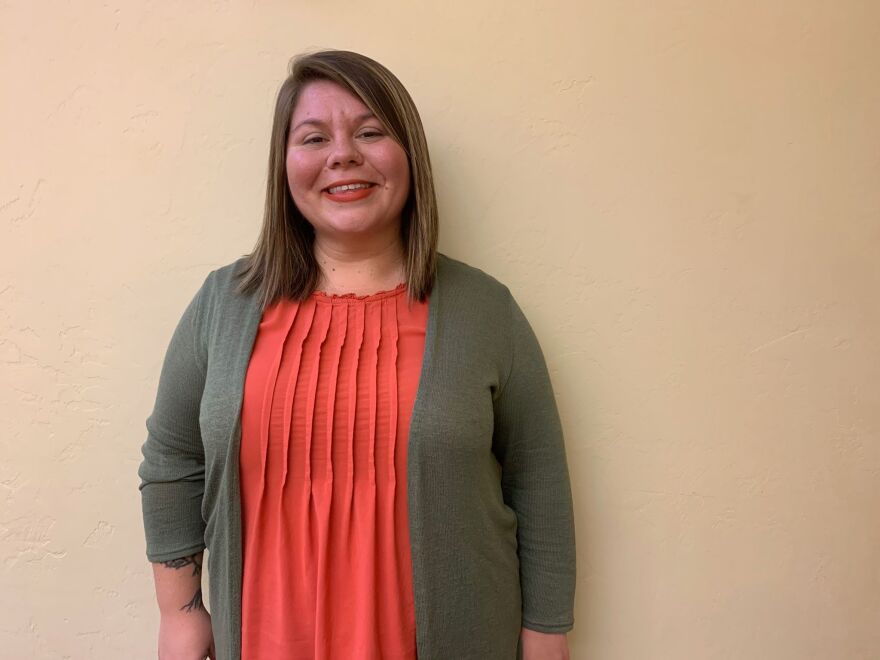Oregon’s foster care system has more than a few issues, according to last year’s Secretary of State’s audit of the Department of Human Services. However, Looking Glass’ Regional Crisis Center in Eugene is trying to help children struggling in their home environment.
President of Looking Glass, Craig Opperman, walks me around its Regional Crisis Center.
Not only are there classrooms and offices for therapists, but there’s also a small cafeteria and basketball court. Tall fences surround the building.
The Regional Crisis Center offers residential treatment for minors over the age of twelve.
Tiffany Cordova is a mental health therapist at the center. She says it provides help with the children’s behavioral problems.

“It’s considered a residential program that’s a step below hospitalization,” says Cordova. “So what we have is a psychiatrist, a therapist, and then a case manager who works with DHS to provide care.”
Cordova adds these children often have low tolerance for difficult emotions, so their goals include teaching coping mechanisms and strategies for emotion management.
The center currently houses six children. They hope to reach their 14 bed capacity soon.
So how does this facility help the issues in Oregon’s foster care system?
The Secretary of State’s audit found several overarching problems. These include chronic management shortcomings and staffing challenges.
Marcia Lowry is the executive director of A Better Childhood, a nonprofit advocacy group that aims to improve foster care services across the country. She says Oregon used to be a leader in the field, but now has one of the worst foster care systems in the U.S.
“I think it’s very important to realize that a child welfare system does not have to function as poorly as the Oregon system does function,” says Lowry. “It is entirely possible and reasonable to expect that a system can run well if it invests the resources and provides the range of placement programs for kids.”
Jake Sunderland, with Oregon’s Department of Human Services, says they are working on the audit’s recommendations. A follow-up by the state found they had implemented a third of them.
“This is a very large, very complex system that deals with some of our state’s most vulnerable youth and it’s going to take some time implement this reform effort that will help us best take care of the children in our care,” says Sunderland.
The audit, released before the Regional Crisis Center opened in February, showed that the number of residential facilities offering mental health treatment is shrinking.
Because of that, children with acute needs could end up in foster care homes not equipped to handle their specific issues or are sent out of state. This can keep them from finding permanency with a family or a stable foster home placement.
Regarding the Regional Crisis Center, Sunderland says while 14 new beds may not seem like a lot, this space is hugely beneficial to this small population of at-risk children.
“So this is great because it’s going to provide a safe setting for children with complex needs, who need behavioral health assessments and psychiatric treatments,” says Sunderland.

Clinical director of the Regional Crisis Center, Liz Schwarz, says not only are their goals to help children cope with trauma and deal with behavioral issues, but their main priority is reunifying them with their parents or finding them a supportive foster family.
“Ideally, they’re going to head back and reunify, or they’ll get to the placement that they need to be, that’s going to be most appropriate for their needs,” says Schwarz.
Schwarz adds the center also helps by helping stabilize the home environment. For example, if a parent is experiencing drug or alcohol problems, the child can stay at the center while the parent attends a sobriety program. Then, working with DHS, the child has a chance to be reunified with their families.
“Best case scenario is that they’re leaving the regional crisis center and heading back into their home environments or community environments where they can be attending public school and doing that kids do, and not have to be in facilities or be moved around every couple months,” says Schwarz.
The average stay at the center is between 60 and 90 days. A child is discharged when they are practicing safe behaviors and have supports in their community.
The Regional Crisis Center says 4 out of their last five discharges were reunited with their biological parents.






